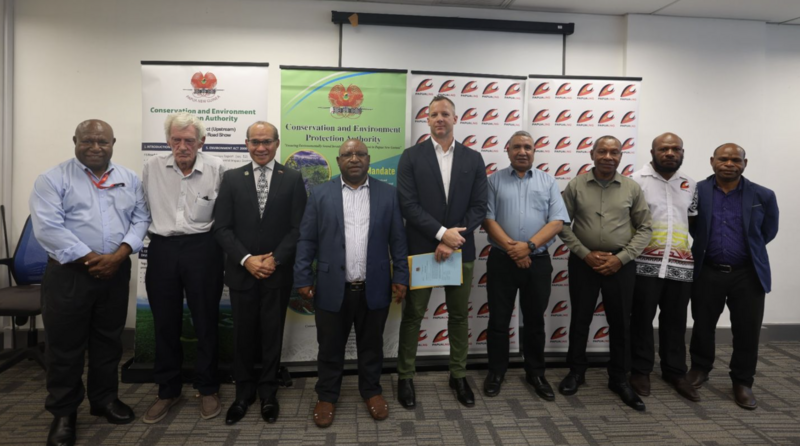The Conservational and Environmental Protection Authority (CEPA) has granted the Level 3 Environmental Permit for the upstream component of the Papua LNG Project to TotalEnergies EP PNG Limited (TEP PNG), marking a key step toward the project’s eventual Final Investment Decision (FID).
The Level 3, or “L3,” permit is the principal regulatory approval under Papua New Guinea’s Environment Act 2000 for activities declared to be of national significance. It allows companies to proceed — subject to stringent, independently peer-reviewed impact assessments — with mitigation and monitoring measures.
The permit requires the development of Environmental and Social Management Plans (ESMPs), which define how potential impacts will be managed, continually monitored and reported throughout the project’s life cycle. It also enshrines public participation and transparency, giving stakeholders opportunities to raise concerns, contribute local knowledge and engage in project dialogue.
In a formal handover ceremony, CEPA Managing Director Jude Tukuliya presented the permit to TotalEnergies EP PNG’s Public Affairs Manager Richard Kassman in a gesture officials said signified forward momentum for the project.
“This significant milestone will lead to alignment to Prime Minister James Marape and government’s aim of having nearly K200 billion worth of oil, gas and mining projects in the next 15 years,” Tukuliya said.

Observers see the permit issuance as the culmination of a decade of collaboration, regulatory scrutiny and negotiation between CEPA and TEP PNG. It brings the Papua LNG initiative one step closer to full investment approval, although final decisions have yet to be made.
For many observers and stakeholders on the ground, the permit is more than a bureaucratic milestone. It is a sign that hopes for job creation, infrastructure investment and revenue generation for affected communities remain alive — even as environmental and social safeguards remain under close watch.
As Papua New Guinea balances economic ambition with environmental responsibility, the permit’s conditions and the strength of enforcement will be keenly observed by local communities, civil society groups and international partners.










